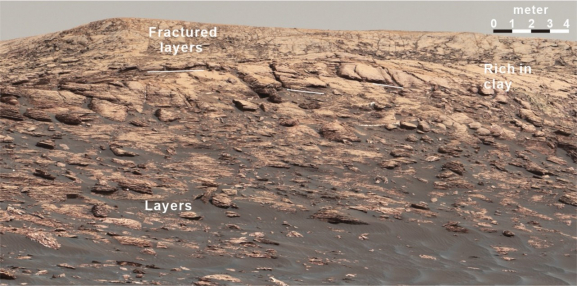 HKU Department of Earth Science
HKU Department of Earth Science
Seminar

The Great Oxidation Event on early Mars: evidence from remote sensing and Mars rover data
-
Date
October 11,2021
-
Time
9:00AM
-
Venue
JL104
-
Speaker
Mr. Jiacheng LIU Department of Earth Sciences, HKU
Perhaps the most significant geological incident that ever occurred on Earth is the Great Oxidation Event (GOE), which happened c.a. 2.45 billion years ago. The distribution of Fe in weathering sequence can serve as a proxy for iron mobility and therefore redox state. Through a comparative study of terrestrial weathering sequence at Hainan island with surface clay minerals on Mars, I demonstrate that most Martian surface clays minerals were formed through pedogenesis. For example, the layered clay-rich deposits in Gale crater (the landing site of NASA Mars Curiosity rover) have been consistently interpreted as lacustrine deposits by the rover team, but I argue these rocks represent chemically weathered eolian deposits based on geochemical, mineralogical, and textural trends. Fe was strongly leached in the uppermost parts of the weathering sequences on Mars. The intense Fe loss from paleosols indicates anoxic chemical weathering under a reducing greenhouse on early Mars. Because modern Mars’ atmosphere is oxidizing, it implies that Mars has also undergone a Great Oxidation Event, though for different reasons than the Earth did.
Additional information: Mr. Jiacheng LIU, u3005559@hku.hk
